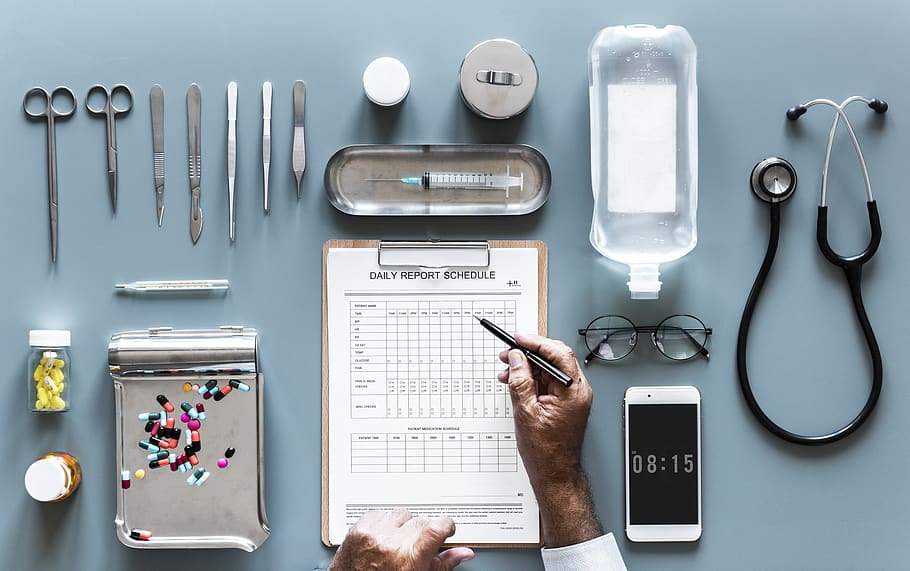The role of information technology is getting more significant in the healthcare industry. So, doctors and healthcare professionals are using modern tools to provide the best service for patients.
It’s also the core mission of a health informatics specialist. So, what values does this role provide? What happens in a day in the life of health informatics specialists? Keep reading to find out right now!
An Overview of Health Informatics Specialist
This role features a cross between the IT and medical fields. It focuses on applying programs to analyze medical data. Thus, the specialists can develop accurate reports and give proper treatments.
The specialists deal with data collected from healthcare services. They will use modern tools and software to analyze data and extract valuable information.
Then, they will submit the result to the other departments. The specialists don’t directly work with patients. However, they play a vital role in developing medical treatment and support.

A Day In The Life Of A Health Informatics Specialist
The role of a health informatics specialist is quite different from a doctor. The specialists don’t deal directly with any traditional medical tools. I will discuss my daily tasks and working schedule to give you more insights.
Work Environment and Job Overview
I work at a consulting firm that connects with many healthcare centers. My job is to analyze and manage data collected from these institutions.
Then, I will extract valuable outcomes and report them back to the medical experts. My duty is quite similar to a consultant who uses modern technology.
Besides analyzing, I’m also responsible for managing patients’ data. For example, I help organize all patient’s data and form detailed reports on their conditions.
8:00 AM
My word day starts at 8:00 AM when I attend the firm. If it’s the first day of the week, I will join a company meeting. The director will go through the upcoming weekly tasks and new data plans requested by our customers.
Normally, a team is responsible for a specific medical center’s data. Each team has a manager to control all the resources. They also assign tasks and goals to each team member.
For example, my duty is to review and collect all patient’s data. I will help form a detailed medical report for all patients.

9:00 AM
I begin with reviewing the medical records provided by the healthcare center. Then, I will feed all data featured to the system. A record consists of factors:
- Age
- Ethnic
- Nationality
- Gender
- Weight and height
- Medical problems
Then, I will submit all the data collected to an analyzing software. The tool will collect the raw data and organize it into detailed reports for all patients.
Also, the tool will assess the condition of each patient based on the collected data. It will help the centers keep track of patients’ states better. They can also utilize more suitable treatment methods.
10:00 AM
I typically finish the medical reports in the first two hours of my day. Then, I will switch to the next project assigned by the firm. It involves recording the types and number of medical supplies consumed in a center.
Similarly, I will review the records and pay attention to each patient’s medical treatment. It will help me know the type and number of medications prescribed.
Then, I will feed all the raw data to the database. The software will analyze data and form a detailed survey. I will recheck the result carefully before handing it over to the team manager.
The specific time I spend on each project varies based on the volume of data provided. My morning work finishes at 12:30 AM.

1:00 PM
Medicine surveys and medical reports are the two main projects that I work on daily. The hospital can use the survey to manage its financial spending better.
The survey can let the center know about the types of medicine that feature the highest demand. Then, the hospital can purchase them in larger quantities.
It will help avoid a lack of supplies. Also, the hospitals can manage their budget better, so my work can benefit both patients and the centers.
4:00 PM
Manager will assess the data’s volume and set specific goals for each specialist. At the end of the day, I will review the reports and submit them to the manager.
A typical day at my workplace will involve the mentioned duties. Sometimes the firm can deploy a team of specialists to the hospitals and centers.
On these occasions, I can help research the operation at the hospital. It will help me develop better ways to collect data. I also met with the hospital’s staff and director for more information.

Essential Skills
An undergraduate program can barely cover all the knowledge to perform this role. So, you should pursue a bachelor’s degree in health informatics.
Regarding the skills, you must be proficient in analyzing data. The ability to use different data-analyzing tools and programs is essential for this role.
Besides, you need to be excellent at managing projects and data. Problem-solving skills and strategic thinking are also indispensable qualities of an excellent health informatics specialist.
Is Health Informatics The Right Profession For You?
Our report indicates that health informatics specialists earn an average salary of $79,597 per year. Meanwhile, the top experts in the field with high competency can earn up to $125,085 per year.
This number is impressive in the healthcare industry. Due to its high contribution to society, experts in this field earn high respect and recognition from others.
Suppose you are good at working with data and want to specialize in the medical domain. Then, this career path will offer the values you are looking for.
Final Thoughts
The healthcare field is among the top domains that benefit the most from data technology. Specialists can now use modern tools to track patients’ records and examine their conditions.
The data collected will help them develop better treatments. They can also provide patients with the most accurate healthcare support.
Becoming a health informatics specialist is a fun and challenging journey. I hope my views and experience can give you more insights into this career.
Thank you for reading!
